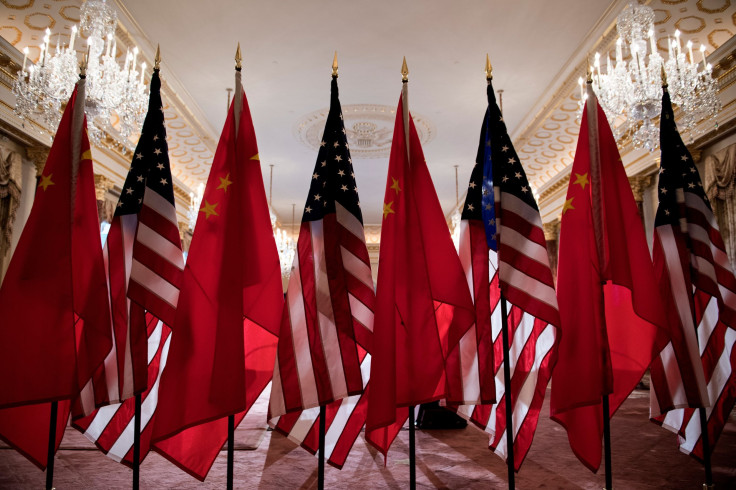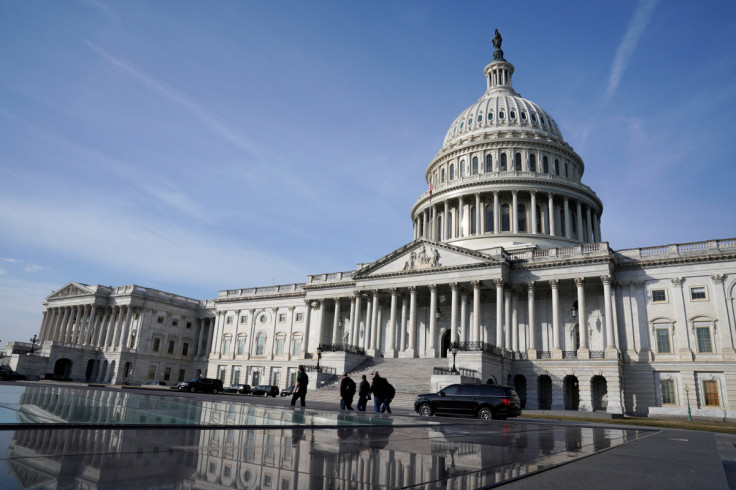Intel Committees Warn China Is A Threat To US Through Espionage And TikTok

KEY POINTS
- Congress' intel heads warn China could use TikTok to undermine U.S. security
- The House intel chief said China is tripling its nuclear arsenal
- The Senate intel committee chair expressed concern over American users' TikTok data
The intelligence committee heads of both chambers of Congress warned that China poses a national security threat to the U.S. through espionage and technology.
In an interview with ABC News, Ohio Republican Rep. Mike Turner, the chairperson of the House Intelligence Committee, expressed concern about China's growing threat to the U.S.
"I think what we heard clearly from the intelligence community is the emergence of China as a threat, both militarily and through espionage, and as the senator was just saying, through technology, quantum technology computing, also certainly the ability for them to insert themselves through TikTok into our data systems," Turner said.
Turner also noted that China is expanding its nuclear weapon arsenal and shipbuilding, urging the Biden administration to "respond very strongly."
"They're tripling their size of their nuclear weapons pointed at the United States. They're expanding their shipbuilding. They are absolutely emerging as a military threat to the United States. I think we need to respond and respond very strongly," the House intelligence committee chair said.
Virginia Democratic Sen. Mark Warner, the Senate Intelligence Committee chairperson, echoed Turner's remarks, arguing that the U.S. is in "enormous competition with China."
Warner expressed concern that the data of 100 million Americans using TikTok is "residing in China," warning that the app could be a platform for Chinese state propaganda.
GOP Rep. Mike Turner, chair of the House Intelligence Committee, tells @MarthaRaddatz that China is emerged as a threat “both militarily and through espionage.”
— This Week (@ThisWeekABC) March 12, 2023
“Certainly the ability for them to insert themselves through TikTok into our data systems.” https://t.co/2jPydU5dKv pic.twitter.com/FfxckqbXkH
Last week, Avril Haines, the director of National Intelligence, revealed in a Senate Intelligence Committee hearing that China is the "most consequential threat" to U.S. national security.
Haines said China is attempting to challenge U.S.'s dominance in the global economy, technology and military.
However, Haines noted that Chinese President Xi Jinping wanted stable relations with the U.S. despite growing tensions between the two world superpowers.
The DNI said Xi wanted to prioritize managing China's domestic problems and economic uncertainties instead of picking a fight with the U.S.
The Biden administration has also pursued banning the popular Chinese video-sharing app from federal government-issued phones to protect official data.
Office of Management and Budget Director Shalanda Young told federal government agencies to purge TikTok from official devices within 30 days.
Federal Chief Information Security Officer Chris DeRusha defended the White House decision, saying that the TikTok ban is part of the Biden administration's commitment to secure U.S. digital infrastructure.
The White House also backed a bipartisan Senate bill empowering the federal government to ban TikTok and other foreign technologies seen as a national security threat.
The legislation aims to provide the Commerce Department the power to restrict technologies that pose national security risks from China, Russia, North Korea, Iran, Venezuela and Cuba.

© Copyright IBTimes 2024. All rights reserved.






















